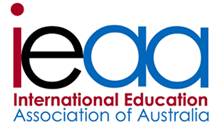Simplified Student Visa - The story so far

It has been more than 2 months since the introduction of SSVF - Streamlined Simplified Visa Framework, which was to replace the SVP - Streamlined Visa Processing regime and aimed at making the whole process more "simplified". Going by the feedback received from the industry (via education agents, providers, DIBP officials) and the stories appearing on various media ( The Australian - Student visa shift risks $18bn in exports, SBS New changes to Australia's student visa triggers major delays and even rejection, say education providers) and countless social media streams the picture is miles away from the term simplified.
With each change in the visa regime and I am sure my counterparts who like myself have been part of this industry since the last couple of decades would agree that each of these changes, brought in initial turmoil and a general feeling of blaming DIMIA /DIAC/ DIBP for bringing about such changes. Let's keep the case of teething issues which are prevalent with each policy change, in our minds before we dissect the current issues at hand.
Challenges currently being faced:
Huge delays in the processing of overseas applications and the graph climbing up north in terms of visa rejections:
This is surely becoming a pain for providers (including Universities, TAFE's, English language providers and private RTO's). These developments have sparked the debates amongst the industry pundits of the upcoming threat to the very viability of our $18 billion export industry.
Education providers say that thousands of overseas students, particularly from China, have been caught up in the new system, introduced on July 1.The delays are not only causing education institutions financial stress but threatening longstanding partnerships, and putting at risk a prestigious scholarship program through which China sends abroad 6000 of its best postgraduates each year.
The Chinese Scholarship Council is so concerned about the delays it is recommending students approved for postgraduate study in Australia seek other host countries, said Australian Council of Graduate Research executive officer Fiona Zammitt.
2. Complications in the submission:
Although SSVF brought in the ability for a visa application to be lodged online, this has brought in a sea of education agents who are not MARA agents and have not received training on lodging visas online to overload the system with under par or at times incomplete applications, thus causing further delays and affecting genuine applications.
Countries that were previously straightforward have become complicated - e.g. Japan from 30 minutes to do an application now up to 2-3 hours.
Need to load the student's 10 - year history of travel (most can not recall and passports do not have the arrival stamps that they used to.
Full data on family, and work history that pre-July 1 low-risk countries did not have to load.
3. GTE:
The dreaded, much debated, most argued, subjectively implemented word. This is one area where no agent could be sure as to how the admission officer or the case officer would decipher the responses provided by the applicant. Now, both the admission officers and case officers are no MARA agents, so how they implement GTE becomes quite subjective. A look at some of the reasons for visa refusals is sure to open the pandora's box. "Why are you applying to study for the <course> when it is readily available in your home country" "Since you already have family connections in Australia, you do not meet the entry of GTE" and countless other responses add to such absurd reasoning behind refusals.
The dilemma being faced by admissions office is the growing use of "rehearsed" / " pre prepared" responses provided by agents to the applicants to be used in responses towards the GTE questionnaires. Its not physically or resourcefully possible to interview / verify each of these applicants, so the whole notion of accepting internationals on the basis of their responses towards the GTE questionnaire is a bit of being blind eyed and submitting to their faith in the trusted education agents hand, who as we all know has a commercial interest in the whole process!
Where to from here:
The introduction of these changes does potentially adds more fire to the eternal question of course hopping. Rogue agents looking at short term gains, non genuine students waiting to exploit the provider's risk ratings, small providers dipping into the booming onshore recruitment market (from my previous post SSVF - Major Changes) It surely is a bit of wait and watch situation currently.
Watch this space!!



















